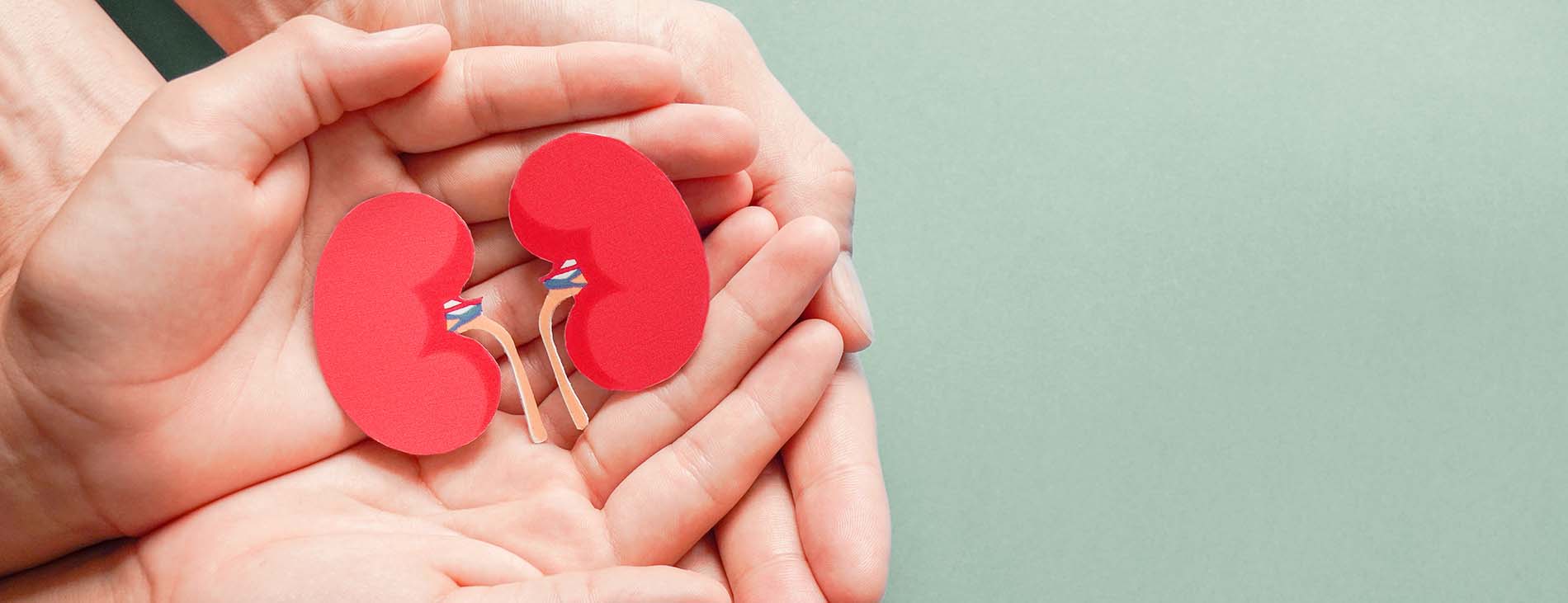Kidney Transplant Program
Our Medicare approved Kidney Transplantation Program (established in 1967 and the first in the Houston/Galveston area) has performed more than 3,500 transplants to date while continuing to achieve excellent results and exceeding national standards for patient/graft survival. We also offer living donor kidney transplant with minimally invasive laparoscopic nephrectomy for donors. We participate in paired donation programs and we have programs for incompatible live donors.

Living Kidney Donation
There are more than 90,000 people listed for kidney transplant. The number of patients waiting for a kidney far outweighs the number of deceased donors. This has led to a longer waiting time and a decrease in health and quality of life for potential kidney
transplant recipients. This continued shortage of donor organs has led to an increased reliance on living donation. A person can live and function normally with only one kidney and recipients that receive a living donor organ typically have better
clinical utcomes. To spare a patient frequent dialysis and a long waiting time, many relatives, friends and others who may wish to remain anonymous, serve as living kidney donors.
What is living kidney donation?
Kidney transplantation is an option for the treatment of end stage organ failure. Other options include peritoneal and hemodialysis treatments. The goal of living kidney donation is to remove a healthy kidney from a living donor for placement into a person
with kidney failure, freeing them from dialysis treatments and improving their quality of life.
What are the benefits of being a living kidney donor?
While there are no direct physical or monetary benefits of being a donor, giving the gift of life can be an emotionally rewarding experience. Many donors report positive feelings following donation.
What is the process for being a living donor?
The screening process begins with a phone conversation with a member of the living donor team. An initial health screen is completed and the potential donor can ask questions and learn about the living donation process.
If the donor meets preliminary criteria, lab work will be completed to determine if the potential donor and recipient are blood type compatible.
The next phase is the medical and psychological evaluation conducted by an experienced physician and other members of the living donor team.
If the donor is determined suitable by the team, the surgery will be scheduled at a time that is convenient for the donor and recipient.
Our living donor team will support you and your family throughout the process. We are here to answer your questions and make this process as smooth as possible.
Commonly Asked Questions
What are the risks of being a living kidney donor?
The risk of complications of living kidney donation are very low. There is a rare incidence of hypertension and a decrease in function of the remaining kidney.
There are some psychological risks of donation that may include depression and/or feelings of guilt if the donated kidney does not function well in the recipient.
These risks will be discussed at length with the potential donor by the living donor team during the evaluation process.
What if I decide I do not want to be a donor?
A potential donor can opt out at any time during the donation process. This is a voluntary decision that will be supported by the living donor team and will not be shared with the recipient.
What if I am not a match with my potential recipient?
Sometimes a potential donor and recipient may not be a match. This is referred to as being “incompatible”. If this is the case the donor and recipient pair may be considered for paired donation. In paired donation, the living donor may willingly
donate his kidney to another person knowing that his intended recipient will receive a kidney from another living donor that is a match.
How long will I be in the hospital?
Donors at the Texas Transplant Center are typically hospitalized for 3-4 days and often less.
When can I return to work?
Although every person heals differently, most living donors return to work in four weeks.
Can I get pregnant after donation?
Kidney donation should not affect your ability to become pregnant and have a healthy baby after donation.